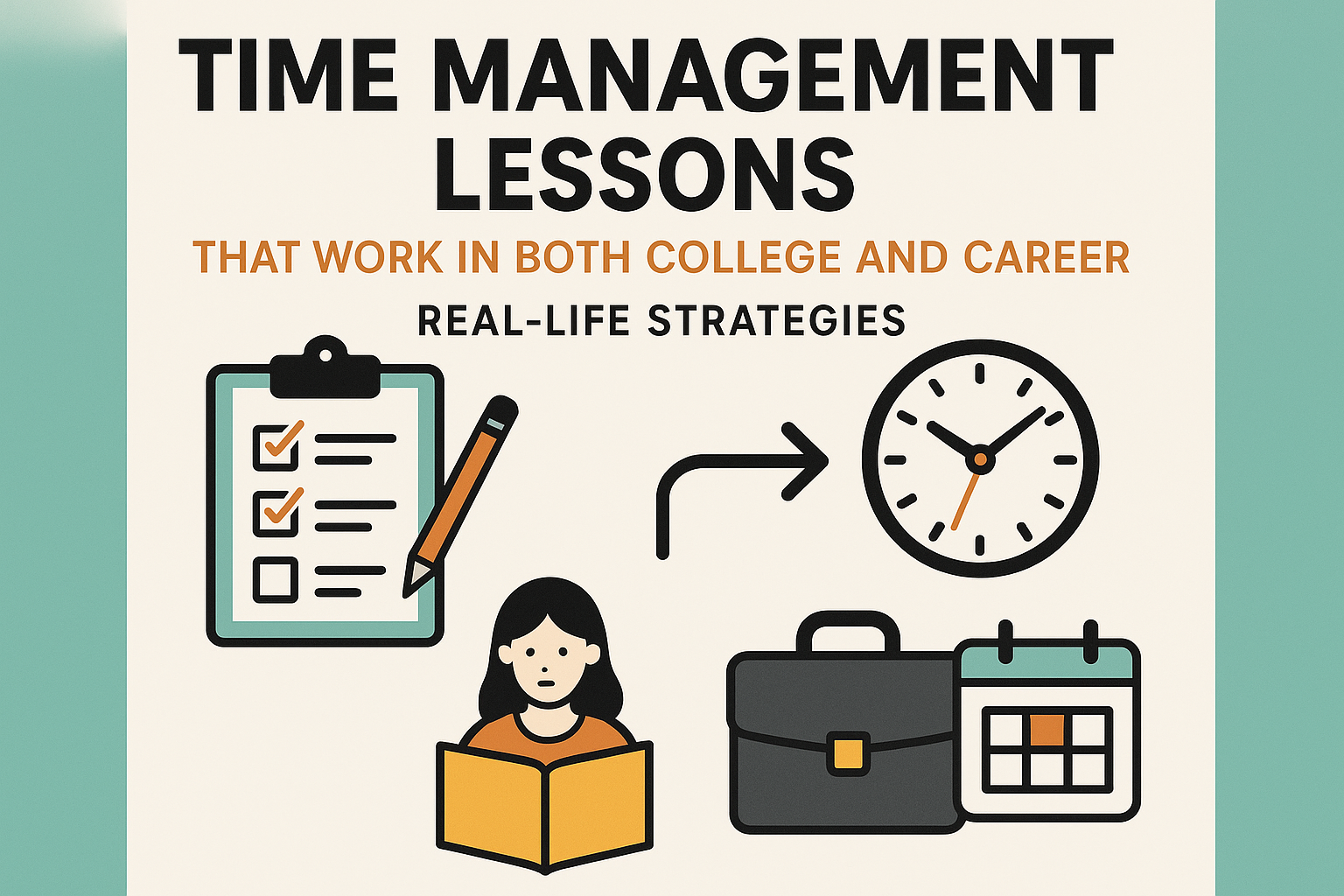


Last updated on: October 29, 2025
2 Views
Yuvika Rathi
College Student

Whether you’re preparing for semester exams or handling back-to-back client meetings, time management is the single skill that defines how far you go. College trains you to juggle classes, projects, and social life; your career demands that same discipline on a bigger stage.
This article explores practical, transferable time management lessons that bridge the gap between student life and professional success.
In college, you learn that doing everything perfectly is impossible—some assignments matter more than others. The same rule applies at work.
Use the Eisenhower Matrix (Urgent vs. Important) to decide where to spend your time:
| Category | Examples | Action |
| Urgent & Important | Deadline tomorrow, crisis handling | Do it immediately |
| Important, Not Urgent | Skill development, research | Schedule it |
| Urgent, Not Important | Emails, small requests | Delegate or limit |
| Not Urgent, Not Important | Endless scrolling, distractions | Eliminate |
- Learn more about prioritization techniques from the Harvard Business Review:
https://hbr.org/2018/01/how-to-prioritize-your-work-when-everythings-urgent
Many successful students and professionals swear by time blocking—allocating fixed hours to specific tasks.
Tools like Google Calendar or Notion can automate reminders and build discipline.
Explore how to start time blocking effectively:
https://todoist.com/productivity-methods/time-blocking
If something takes less than 2 minutes, do it immediately.
This simple method prevents task pile-up and creates a sense of momentum that boosts confidence in both study and work environments.
College teaches you that late-night study marathons don’t guarantee success. The workplace echoes that—long hours without rest kill creativity.
Adopt micro-breaks using techniques like the Pomodoro Method (25 min focus + 5 min rest).
Try it with this simple guide from Trello:
https://blog.trello.com/pomodoro-technique-productivity
Also, set clear boundaries:
Both students and professionals grow through reflection.
Every week, spend 15 minutes reviewing:
This practice transforms your productivity habits over time and ensures you never fall into routine inefficiency.
A good method to start: Getting Things Done Weekly Review Guide
Use tech to simplify—not complicate—your time.
Top recommended tools:
These tools help you turn theoretical “time management” into measurable progress.
Ultimately, time management is not just about control—it’s about flow.
When you consistently manage time, you create space for creativity, innovation, and peace. That’s what separates good students and professionals from great ones.
Time doesn’t stretch—you must.
The earlier you master your calendar, the smoother your transition from college to career will be. Start small, stay consistent, and remember: discipline is the real freedom.
Further Reading: